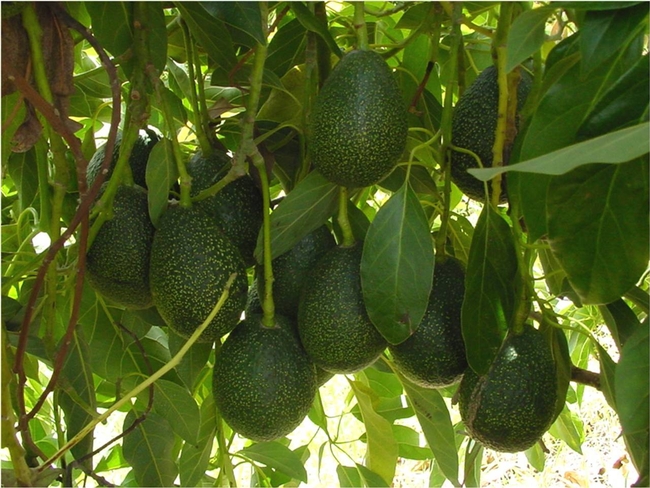There's a new avocado in town

The GEM avocado is the great-granddaughter of Hass avocado, which is currently the industry standard in California. GEM has all the excellent characteristics of Hass avocados - creamy, nutty flesh; dark, pebbly skin when ripe - and it has additional benefits for the grower, according to Mary Lu Arpaia, a UC Cooperative Extension subtropical horticulturist based at the UC Kearney Agricultural Research and Extension Center in Parlier, Calif.
"Hass avocados are alternate bearing - they will produce a big crop one year, and a small crop the next. GEM is more consistent, so growers can make money every year," Arpaia said. "The trees are also more compact, which means growers have less costs for harvesting and tree maintenance."
GEM was part of an extensive avocado variety breeding program led since the 1950s by UC Riverside plant breeder Bob Bergh. Arpaia took over the program in 1996.
In the early 1980s, Bergh released a variety he called the Gwen. However, Gwen didn't turn black when it ripened, a disadvantage because consumers are accustomed to Hass. In the mid 80s, Bergh planted more than 60,000 avocado variety seedlings on farms across Southern California. GEM, a granddaughter of Gwen, was one.
There are GEM trees growing at the UC South Coast Research and Extension Center in Irvine. Fruit samples are sent to the Kearney Sensory Laboratory, where volunteers judge the fruit's outward appearance and compare the flavor with Hass.
Recently, UC Riverside signed an exclusive license agreement with Westfalia Fruit Estates, a South African company, to market GEM around the world, the university announced. In the United States, the California–based Brokaw Nursery has non-exclusive rights to the GEM avocado.
For information on GEM avocado sensory testing, see the one-minute video below.
Read a transcript of the video.
GEM2